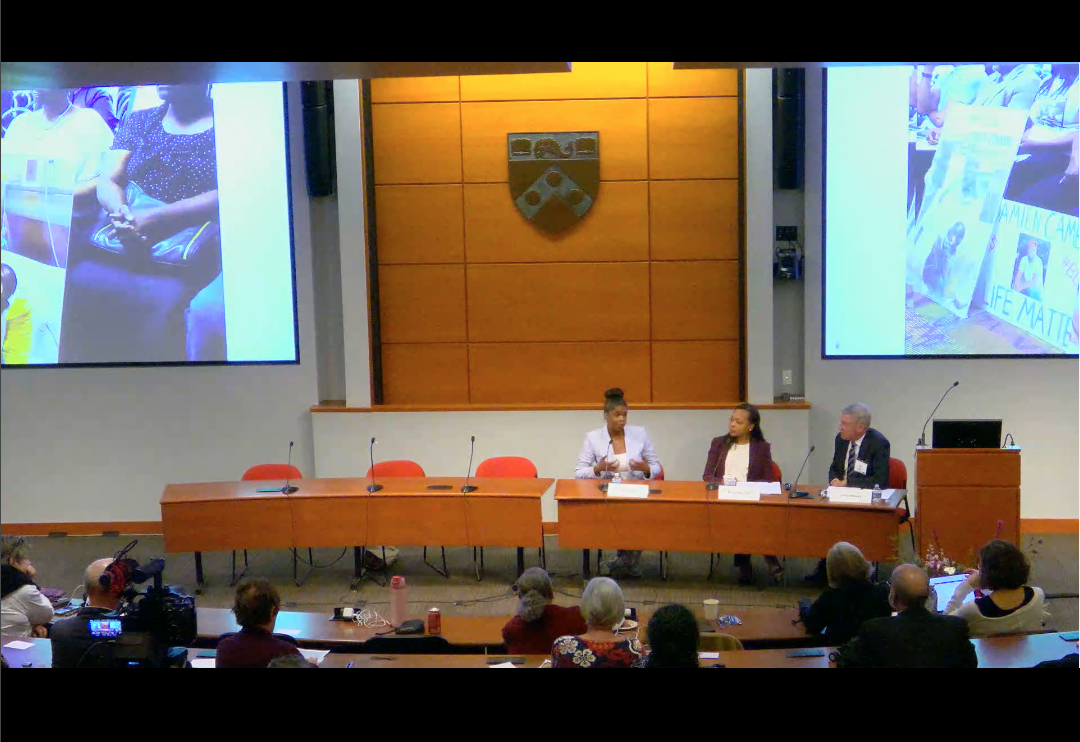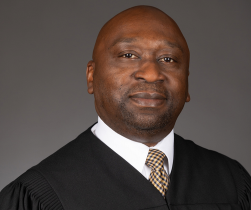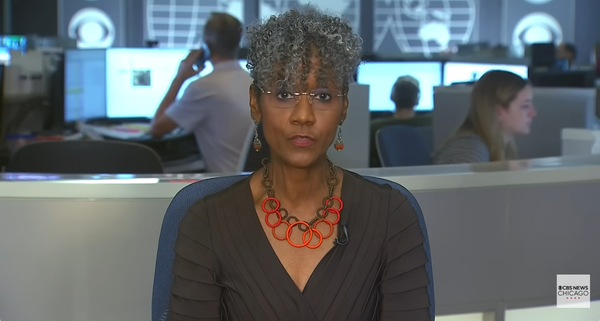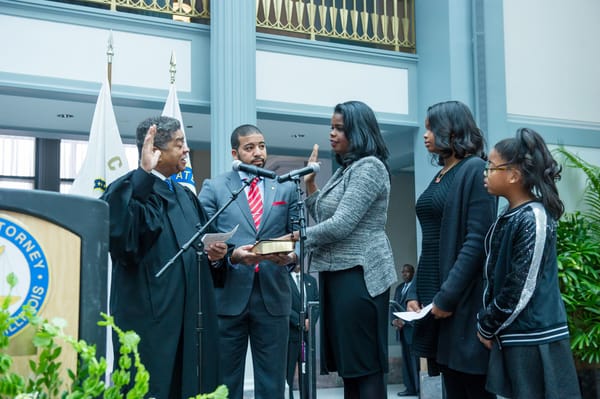“The system is doing what it was designed to do”: Kim Foxx sounds the alarm on reform reversals

In a post-tenure conversation, Foxx reflects on her prosecutorial legacy, institutional resistance, and the dangers of unchecked police power.
In the five months since Kim Foxx left office, Cook County has launched a pilot project that allows police to file felony gun charges in two communities on Chicago's South Side without first seeking approval from a prosecutor. This may be one of the policies that has the former Cook County State’s Attorney worried about the potential unraveling of hard-won criminal justice reforms.
"I have deep fears of an administration that says, ‘If we let police alone do their jobs,’ that we will be back in the era of rampant police misconduct with impunity," Foxx said Tuesday to a national audience of criminal justice reform advocates.
In a discussion at the University of Pennsylvania Cary Law School, Foxx described the prosecutorial discretion she exercised during her eight-year tenure as Cook County's top prosecutor, and the fragility of those policies amid a change in administration.
"Prosecutorial discretion is our superpower," Foxx said. "The ability to say what’s charged, what’s not charged, the ability to choose what offers to make, whether you're making recommendations on bail — the single greatest power that prosecutors have is the use of their discretion."
When she ran for office in 2016, Foxx said she campaigned on using that discretion to prioritize resources in ways that would keep communities safer.
"We had all these shootings, all these homicides, and I looked at the data and said, 'How are we using our limited resources to address the violence in our community?' I came to realize that we were spending far fewer resources going after violence and far more resources going after low-level, nonviolent offenses that could be otherwise disentangled from our court system."
But Foxx said that when she tried to use data to guide her prosecutorial discretion — particularly to deprioritize shoplifting, one of the easiest offenses to prosecute, she says — there was backlash, even from within her own office.
"Illinois has one of the lowest felony threshold levels for retail theft in the country. We decided to raise the felony threshold to $1,000 — in line with the rest of the Midwest," Foxx said. "Even in those low-level cases, you were sending people to prison, maybe for two or three months. So if you're a parent, and that sentence impacts your ability to work or care for your child — are we doing something more harmful in the name of accountability, rather than being more creative in how we handle the system?"
Her efforts to redirect resources away from prosecuting shoplifting cases and toward addressing violent crime sparked widespread resistance.
"You would have thought I had invented something," Foxx said, describing the criticism from her own office she faced after raising the threshold. "There were people who set up secret Twitter accounts, tweeting and sending things out," she recalled.
Since Foxx’s departure, Cook County has returned to its previous $300 felony threshold for shoplifting.
Addressing Chicago’s history of police torture perhaps had the greatest impact on Foxx, as she ran on a campaign to respond to dozens of wrongful conviction claims tied to police misconduct.
"We had a police department that was operating outside of the boundaries... and nothing was happening. Historically, my predecessors were not saying, 'Hey, there’s something to see here.' That was part of the tension — where the legitimacy of our office was being questioned by the public," Foxx said.
"During my time as state’s attorney, we brought more cases against police officers than anyone who preceded me — and we lost all of them."
The reason for the losses: all of the cases were bench trials. Many of the judges were former police officers or former prosecutors.
"Systemically, Cook County was not ready to do what needed to be done," Foxx said, advocating for a strong federal civil rights division to help communities like Cook County — which holds the dubious distinction of being the wrongful conviction capital of the U.S.
Even as she worked to build public trust, setting up a conviction review unit that sought insight from outside attorneys, this unprecedented move sparked more internal resistance.
Transparency became a central strategy in her approach. Foxx released eight years of felony case-level data, allowing researchers and community members to analyze prosecutorial decisions.
During her tenure, Foxx decriminalized peaceful protest activity and directed the office to expunge thousands of low-level cannabis convictions. She also supported bail reform efforts that ultimately led to Illinois abolishing cash bail. Foxx’s most significant discretionary achievements include vacating more than 250 convictions related to corrupt police practices.
"I worry that there are far more people in prison for crimes they didn’t commit — and far more people in for crimes they actually did commit, but who don’t need to be in prison for having done them," Foxx said.
Despite leaving office, Foxx remains committed to advocacy.
"The system is doing what the system is designed to do. It just is. And I think we disillusion ourselves when we believe we can outmaneuver it," Foxx said.
"I can't sit on the sidelines," she added. "This is the time when we need to dig deep and fight as hard as we can — because America is nothing if not consistent. And this feels very much like 1883."
That year, the U.S. Supreme Court struck down the Civil Rights Act of 1875, signaling the end of Reconstruction and the beginning of Jim Crow laws — a rollback of racial justice gains under pressure from white backlash.



